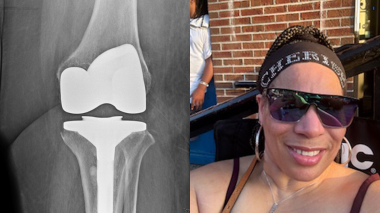Slow down! When it comes to breakfast, lunch and dinner, you want to be the tortoise not the hare. Eating fast may be a part of your lifestyle today, but slower eaters are less likely to become obese and less likely to develop metabolic syndrome – a combination of disorders that increases the risk of heart disease, diabetes and stroke.
Whether you’re eating at your desk, in the car, or at a fast-food restaurant, always think about how you eat in a sit-down restaurant. Your meal should take about 20 to 30 minutes. If you’re gobbling up your food in 5 to 10 minutes, you’re likely to experience indigestion and risk overeating. While you don’t need to chew each bite 50 times, try taking a breath or putting down your utensil between bites to help slow your eating down even more.
If your eating style is closer to a competitive eater than your great-grandmother, here are a few tips to try at your next meal to slow things down:
- Manage your environment at mealtime. This means being selective about where and what you eat. Both your environment and the amount of food available can play a role in how much and how fast you eat.
- Try to add conversation when it’s time to eat. Instead of eating alone, invite a friend or coworker to eat with you. Just make sure to eat with someone you enjoy talking to. This will help you avoid stressful conversation.
- Use utensils. While this may seem ridiculous in some instances, it helps you slow down between bites and control the size of each bite. You’re more likely to finish a sandwich or burger in a few bites when eating with your hands rather than a knife and fork.
- Find a relaxing place to eat. Sitting outside on a bench or in a museum can provide visual stimulants. These stimulants will help distract you from eating your food so fast.
- Enjoy your food. Taking the time to prepare something you enjoy can help prevent you from just shoveling down breakfast or lunch.
- Turn off your phone and computer. Avoid emails and text messages that may tempt you to scarf down the rest of that sandwich to respond.
- Pack a snack. Don’t let yourself get too hungry during the day. You’re more likely to eat fast, and eat more, when you’re unusually hungry. A small healthy snack in between meals is a great way to avoid getting hangry (hungry + angry) and overeating.
- Wait 10 minutes before you eat a dessert. It’s not uncommon to crave something sweet after you eat a meal, but give your body a few minutes to digest before you order that sugary treat. If you still want it, you can make dessert your afternoon snack instead of part of your lunch.



